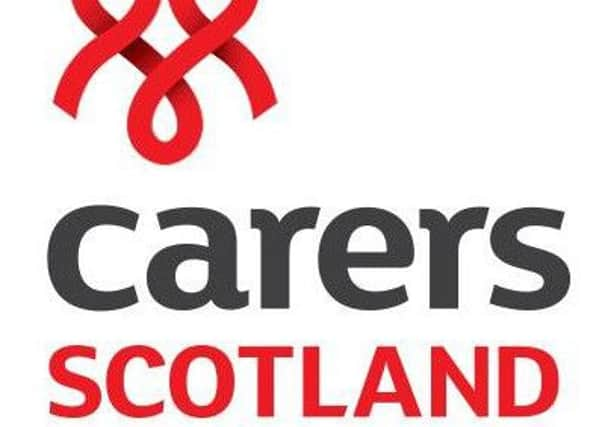Scotland’s carers save the economy £10.8 billion a year


It reveals the 509,7962 people who provide unpaid care for a disabled, seriously-ill or older loved one across the country save the state £10.8 billion every year.
This is close to what it would cost to have a second NHS in Scotland, according to a new report from Carers UK and the University of Sheffield.
Advertisement
Hide AdAdvertisement
Hide AdValuing Carers 2015 - the rising value of carers’ support, is the third in a series looking at the value of carers’ support to the UK economy.
It shows a staggering increase in the value of carers’ support in Scotland since 2001, almost doubling from £6 billion to £10.8 billion.
Researchers attribute this rise to a dramatic increase in the number of hours people are caring for, combined with an increase in the cost of replacement care.
Simon Hodgson, Carers Scotland director, said: “If the nation’s carers were unable to continue supporting their loved ones, it would leave the state with a £10.8 billion black hole.
Advertisement
Hide AdAdvertisement
Hide Ad“As if this wasn’t worrying enough, we believe there are far more carers in Scotland than the report estimates, meaning that the consequences for society of this support dropping off would be even more catastrophic.”
The warning comes as Carers Scotland calls for better financial support and employment rights for carers ahead of the UK Treasury’s Comprehensive Spending Review.
Today’s report reveals that more people are caring for a loved one than ever before.
Not only are more people caring, but they are caring for longer.
Advertisement
Hide AdAdvertisement
Hide AdSince 2001, the number of people providing 20-49 hours of care a week in Scotland has almost doubled (49 per cent) and those providing 50 hours of care or more a week has increased by more than a fifth (21 per cent).
The number of people needing care, and those needing care for longer periods of time, has increased significantly.
Mr Hodgson added: “Caring will touch all of our lives at some point, yet society and public services still haven’t grasped the extent to which our economy relies on the unpaid care provided by family and friends. If even a small percentage of people were unable to continue caring in Scotland, this would be catastrophic for the economy – even more so as we believe the number of carers in Scotland to be far greater than the estimates in today’s report.”
Sue Yeandle, Professor of Sociology at the University of Sheffield and Director of CIRCLE (Centre for International Research on care, Labour and Equalities) co-authored the report.
Advertisement
Hide AdAdvertisement
Hide AdProfessor Yeandle said: “There are more people caring for a loved one, and more people needing care, than ever before. This increase has occurred in the context of large reductions to home care services in recent years, raising serious concerns about whether the services families need to help them care well and have a life alongside caring will be there in the future. Carers are doing more than ever to support others; we must ensure that they get the support and recognition they need and deserve.”
The report outlines a number of key recommendations from Carers UK ahead of the Treasury’s Comprehensive Spending Review on 25 November.
These include: Improving financial support for carers; introducing a right to paid care leave and stimulating a diverse care market to give carers better choice and flexibility.